How to Get Your Modern Jewish Protagonist Into the Mainstream (In a Fun Way): A Terri Libenson Interview

Living with an actual child has had many hitherto unforeseen advantages. Now that my eldest is eight, I get a glimpse into book series that I might have missed otherwise. One of these is Terri Libenson’s Emmie & Friends books. Less well-known than Raina Telgemeier or Shannon Hale’s series, the Emmie books nonetheless have a keen p.o.v. and a penchant for killer twist endings that serve to charm. I’m a big fan, so when I was offered the chance to interview Ms. Libenson about the latest book in the series, I took it.
Note: There are very few realistic, funny, middle grade books out there with Jewish characters. I’m not saying they don’t exist. I’m just saying I’m not drowning in them or anything. And Becoming Brianna, a book in which the main character must contend with the stress of her upcoming bat mitzvah (and all that that entails), fills a much needed gap on our shelves.
ADVERTISEMENT
ADVERTISEMENT
And now, the answers to all your (which is to say my) questions . . .
Betsy Bird: Any interview with you that’s worth its salt MUST begin with me explaining how I came across your books in the first place. In my case, it was just after the publication of your second book for kids, Positively Izzy. A friend was visiting from overseas where his expatriate daughter was desperate for your newest. He was essentially told not to bother coming home again if he didn’t have it in hand. Curious, I sought them out and discovered that they were smart, funny, with brilliant little endings. For folks unfamiliar with the series, how do you tend to sum it up for them?
Terri Libenson: Well, thank you! I call them hybrid books: part graphic novel, part illustrated novel — like the strange love child of Jeff Kinney’s and Raina Telgemeier’s books. They can be read in order or as standalones.
They usually don’t feature huge, catastrophic events, but smaller, serious, universal events that can have a big impact on a kid. I like to think the books are a combo of humor and heart, and they each have some element of a twist ending.
BB: Everyone loves a good origin story. How did you start the “Emmie” series? Where did it originate? What possessed you to write it?

TL: About six years ago, I had a conversation with my cartoonist and author friend, Stephan Pastis (see below), who thought I’d be good at writing an illustrated middle grade novel. Publishers at the time were looking for those types of books, especially written by female authors. It seemed like a natural offshoot for a cartoonist, so I took advantage of any spare time I had and began writing. I think I just wanted to see if I could do it.
I didn’t have an outline or any clear idea of a story. I just freewheeled it and wrote semi-autobiographically, which is my strong point. I used my “voice” from age 13, back when I was super quiet and tended to express myself artistically. That’s how the painfully shy character, Emmie, came about. The story thankfully developed as I went along, as did my enthusiasm for writing it.
BB: I know that you’ve just ended your syndicated cartoon The Pajama Diaries after something like fourteen years. Writing a strip a day sounds grueling to me. Many cartoonists have made the switch, though, like Stephan Pastis (Timmy Failure). What’s the allure of writing for kids in such a different format?
TL: I think the allure of writing these books stem from just feeling like a kid myself. I’m really just a 12-year-old at heart. So if I can amuse myself, hopefully I can amuse kids – as well as relate to them on their level.
Also, I’ve always been interested in writing/illustrating kids’ books. Unfortunately, I just didn’t have time until my own kids were independent and I was ahead with my strip deadlines. I pulled the plug on Pajama Diaries simply because the books were taking over and something had to give. It wasn’t an easy decision, but I’m glad I made it. The strip was geared toward adults, so writing for kids has been such a fun and novel change.
BB: Can I ask you about the endings? In the first two books in the Emmie & Friends series (and to a lesser extent, the third) the books sport killer twist endings. The latest book, Becoming Brianna, doesn’t lean into a surprise ending in the same way. After the first two books, were you afraid of getting locked into an expectation of always ending with a big shocker?

TL: Surprisingly, no one’s ever asked me that. And yes, I definitely didn’t want that expectation. I like the books to have some semblance of a surprising event toward the end, big or small (there are two minor ones in JAIME and BRIANNA). But I mainly just want to tell a good story.
BB: Turning our attention to your latest, Brianna isn’t a new character to the series. Indeed, she shared some of the spotlight with Izzy in the aforementioned Positively Izzy. Now she splits her narrative with herself in a book that flashes back and forth between the past and the present. Did you always intend to give Brianna her own book or was it surprising to you as well that she ended up its star?
TL: Until I had the idea of a bat mitzvah as a central theme, I didn’t know I’d be bringing back Bri at all. But weirdly, I always thought of her as having a Jewish background. When I created her mother in IZZY, I had that in mind. I don’t know why – maybe I was thinking of my extroverted Jewish mom. So I thought Bri would be perfect, especially since I knew her well as a character and knew how much she hated being the center of attention. Poor Bri.
I also wanted to do something formulaically different, so I thought it would be fun just to focus on Bri alone and switch up the timeline rather than the characters.
BB: One of the nicest things about the book (and there are many nice things about it) is how much attention is spent going through the rudimentary basics of a bat mitzvah. I’ve honestly never really noticed this topic in many children’s books. Have you ever had a bat mitzvah of your own? Or, almost even more importantly, have you ever had to hold one for any of your own kids?

TL: I did, and so did my kids. Having thirteen-year-olds as the focus of my stories, my mind automatically went there. And it’s such a perfect (if rare) subject for kids this age. The event is full of challenges, questions of faith, and even relationship issues…like, who to invite, who not to exclude, how to keep your mom from turning into a hyper-focused planner (aka Bat-Zilla) – which I was, by the way.
I knew the subject might be risky for a mainstream kids’ book, but I also thought it would be a great opportunity to 1. introduce non-Jewish kids to the process in a fun, secular way, and 2. be a comfort to kids going through the rigors of having a bar or bat mitzvah.
I really tried to make the story universal so it would appeal to all kids, regardless of faith. I made it comparable to my previous books, while still tackling a unique subject matter…with lots of humor, of course.
ADVERTISEMENT
ADVERTISEMENT
BB: I remember not too long ago someone telling me, “If I was an alien who walked into a children’s room and just looked at the fiction section, I’d swear all the Jewish people died out after WWII. Where are the contemporary books about Jewish kids?” Well, here’s one. Writing the book, did you have much of a sense that you were covering practically untrod ground?
TL: Absolutely! Most of the books I’ve seen or read have been about the Holocaust or Jewish holidays. Here was an opportunity to really get a modern Jewish protagonist into the mainstream in a fun way. I absolutely wanted to do a book about a contemporary (half) Jewish girl and Jewish subject matter that was compelling, funny, and meaningful. I’m so happy my editor also loved this idea.
BB: All right. Untold hoards of desperate readers would compel me to ask this final question. Is there a set number of books in the “Emmie” series? Can you say how many more there might be? And what are you working on next?
TL: Ha, I wish I knew! As of today, there will be a Book Five for next year AND an Emmie & Friends guided journal/activity book out this October, called YOU-NIQUELY YOU. That one was a blast to do, by the way. I’m optimistic there will be even more books in the series in the near future!
Big time thanks to Mitch Thorpe and Terri for the interview. To cap it all off, check out this pretty sweet book trailer:
Filed under: Interviews
About Betsy Bird
Betsy Bird is currently the Collection Development Manager of the Evanston Public Library system and a former Materials Specialist for New York Public Library. She has served on Newbery, written for Horn Book, and has done other lovely little things that she'd love to tell you about but that she's sure you'd find more interesting to hear of in person. Her opinions are her own and do not reflect those of EPL, SLJ, or any of the other acronyms you might be able to name. Follow her on Twitter: @fuseeight.
ADVERTISEMENT
ADVERTISEMENT
SLJ Blog Network
2024 Books from Pura Belpré Winners
Winnie-The-Pooh | Review
Parsing Religion in Public Schools
ADVERTISEMENT



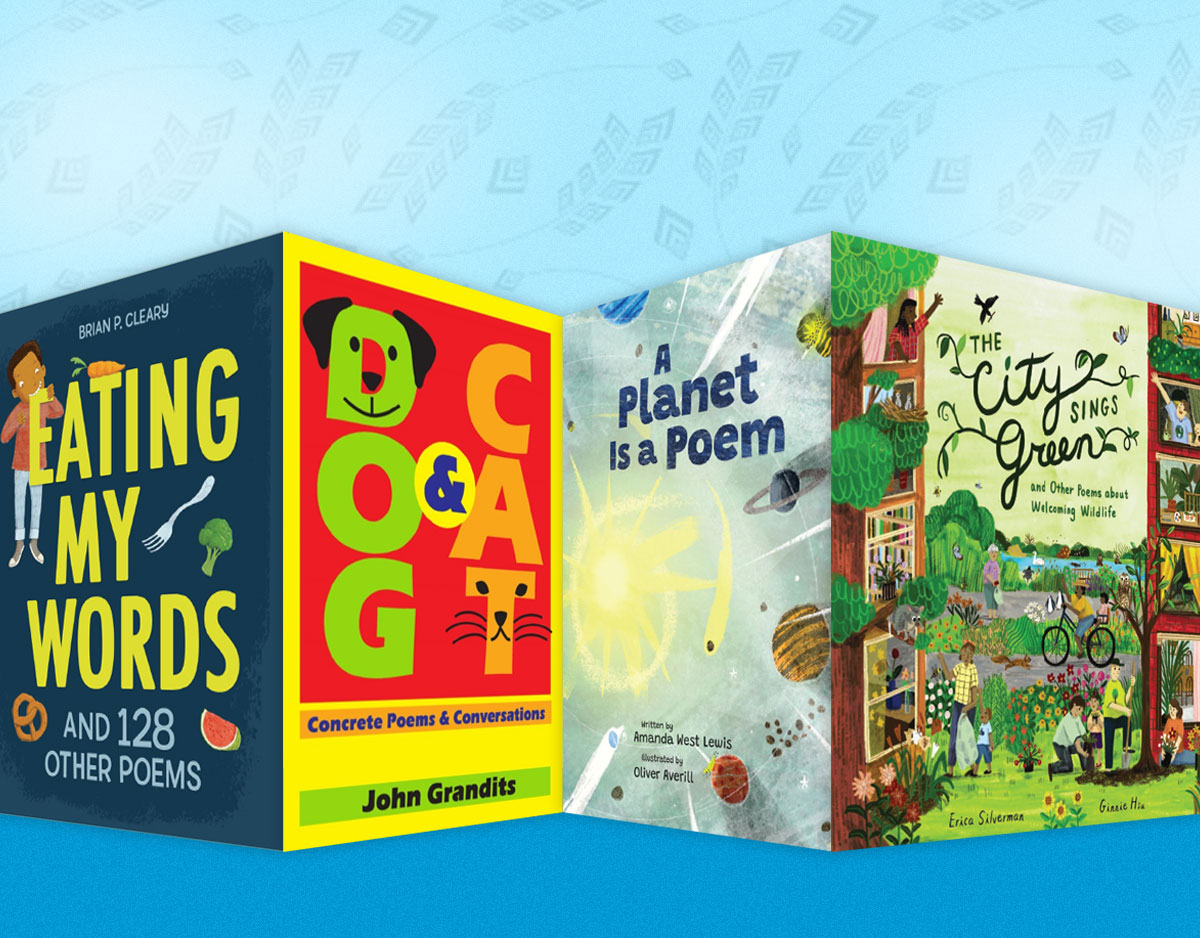
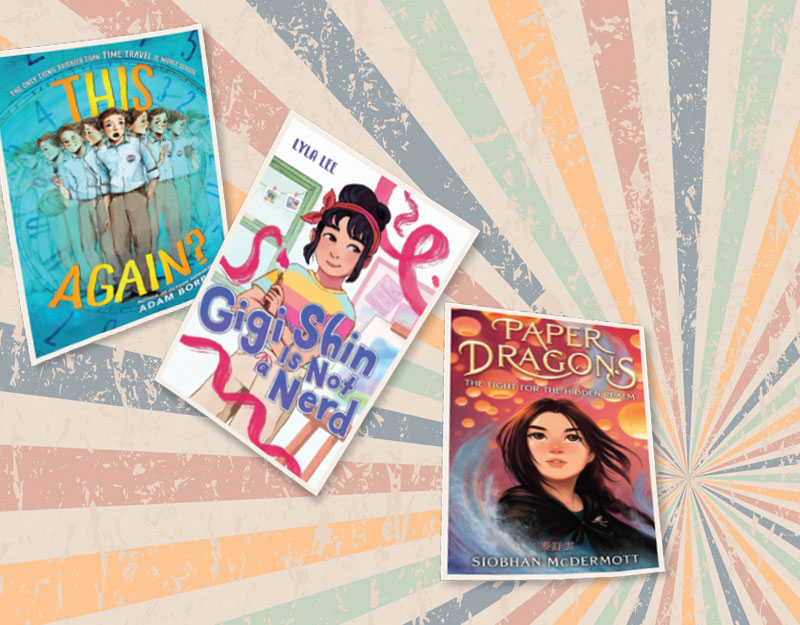
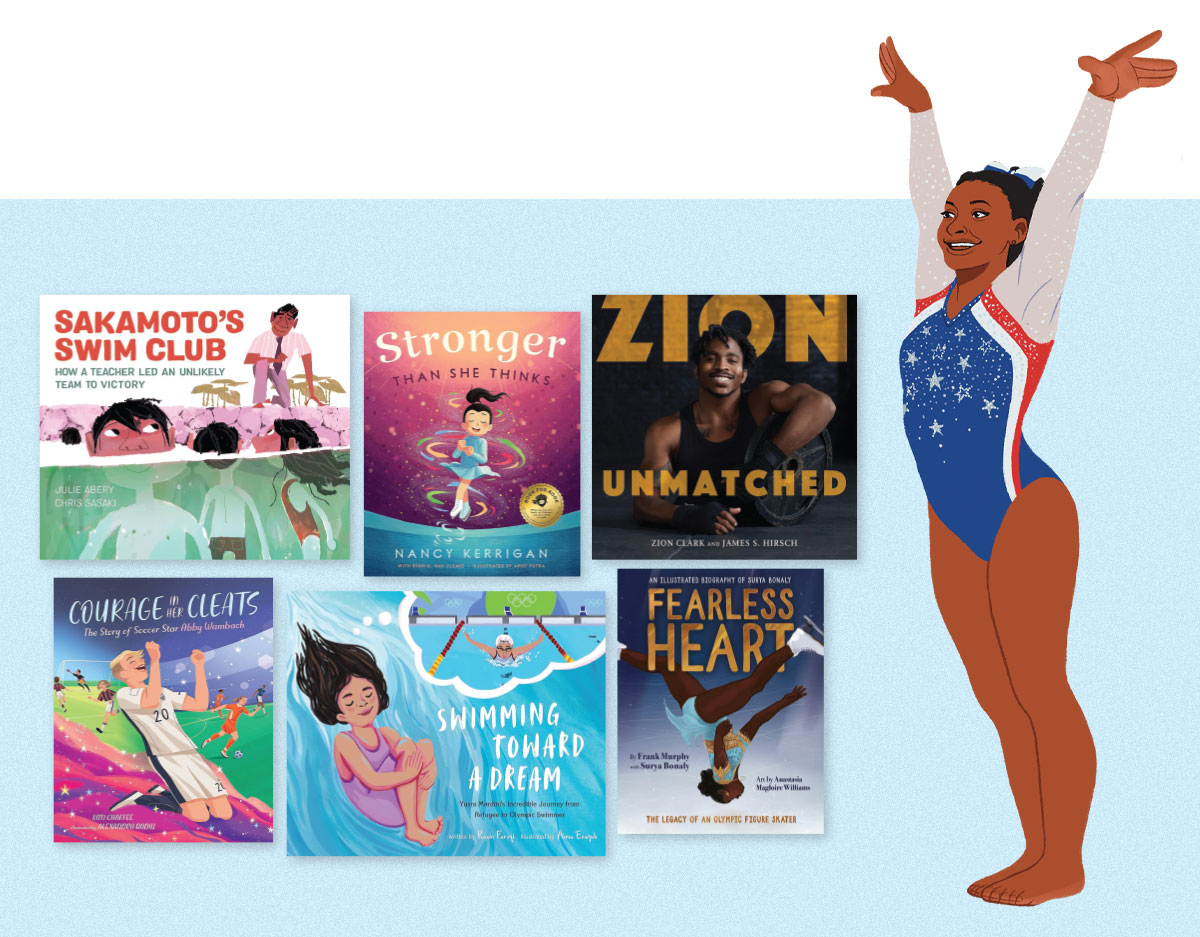
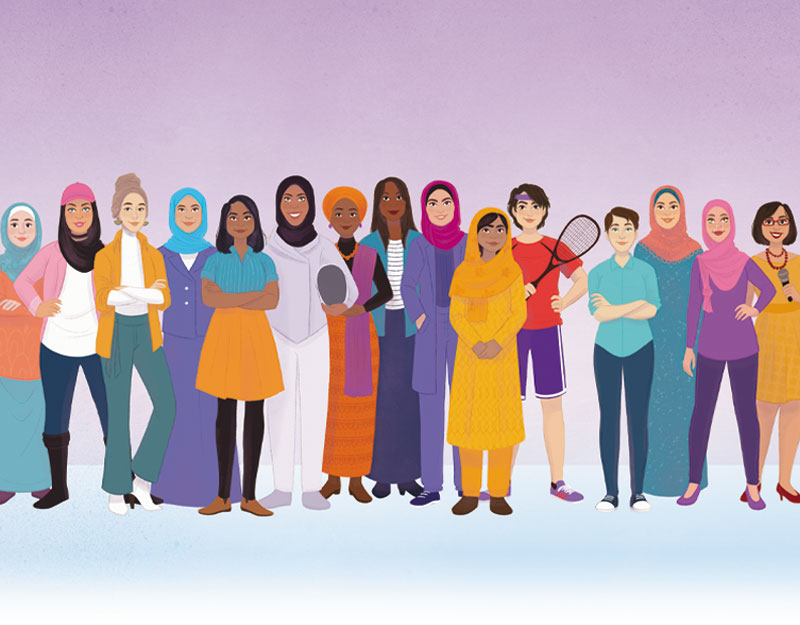
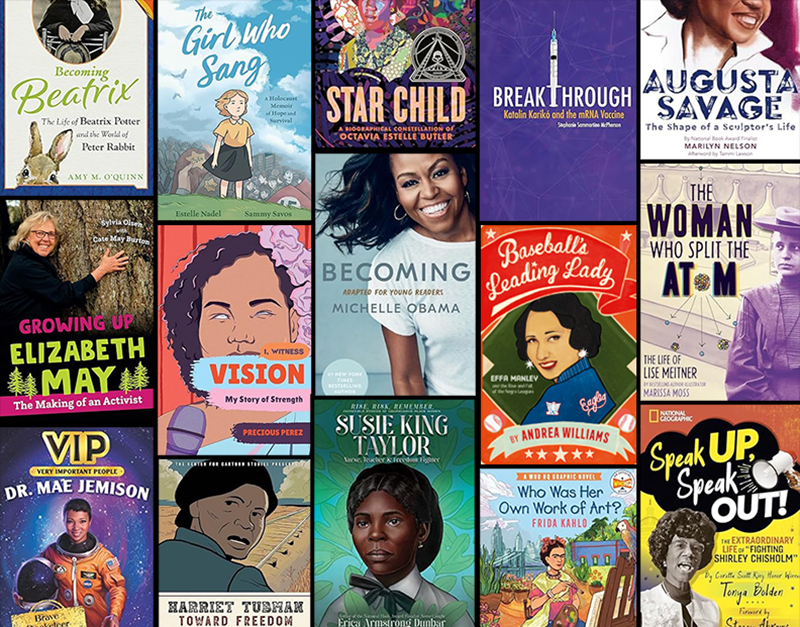
Betsy, thank you very much for running this interview. I will be reviewing Terri’s book for Jewish Book Council. It is absolutely wonderful, and I appreciate the opportunity this interview gives readers to learn more about her work. The story, the pictures, her connection to kids’ feelings, those funny swipes at the patriarchy, all add up to a great story. I have to emphasize that it should not be “risky” to write books for kids with Jewish themes! Readers, myself included, are able to empathize with characters who are not exact replicas of themselves. That is the entire basis of art and literature. If books about other ethnic, racial, religious groups, and genders are assumed to have intrinsic value, and to be enriching for all of us, why are books with Jewish characters and themes so often relegated to a separate category? I hope that Terri will write more books in this series including Jewish characters and experiences, as well as those of everyone else. I can promise that there will be readers eagerly awaiting them. It’s also important to note that Jewish experience is not monolithic, and neither is the approach to bar and bat mitzvah. If the book is good, which it is, that should not matter.
Wonderful interview, Betsy — thanks!